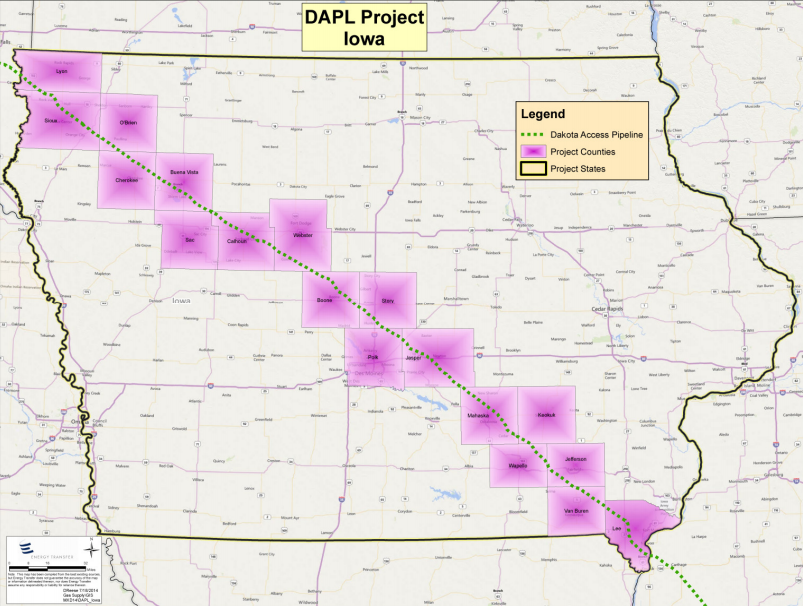Dakota Access Pipeline update
January 20, 2015
The Dakota Access Pipeline proposal has been shrouded in controversy for months now and with eminent domain being filed in both Illinois and Iowa by the proposing company Energy Transfer LLC, it seems appropriate for an update.
Last week, a coalition of over a dozen environmental groups in Iowa reported to the Iowa Utilities Board that the company failed to give proper notice to landowners and all involved about public information meetings about the project.
The coalition also states that that are discrepancies in Energy Transfer’s promise of depth for the pipeline. The coalition claims that the original plan was to bury it 60 inches deep, but changed that number to 48 inches in informational meetings. The IUB is reviewing the coalition’s motion and will not allow the company’s application for the project to go through until these discrepancies are worked out.
Supporters of the pipeline say the economic and transportation benefits would greatly outweigh the possible costs. They state that the 1,100-mile pipeline would have a $1.1 billion economic benefit in Iowa alone, as well as safer transport than rail or truck.
The showdown has created not only large oppositions, but extremely diverse coalitions as well. Those opposed to the project are concerned about reducing oil dependence, land rights, environmental impacts and more. Those in favor, support it because of increased energy independence, temporary increased employment and more.
Whether you are in support of the project or strictly opposed, it will be interesting to see if government intervention is used despite Gov. Branstad’s desire to stay out of it. If the government does get involved and gives Energy Transfer the eminent domain it has requested, hopefully they specifically outline the accountability that the company will be held to.
The decision made with this pipeline may also showcase the priority differences or similarities between state and local governments and the federal government, as much of the nation advocates for investing in new renewable resources.







